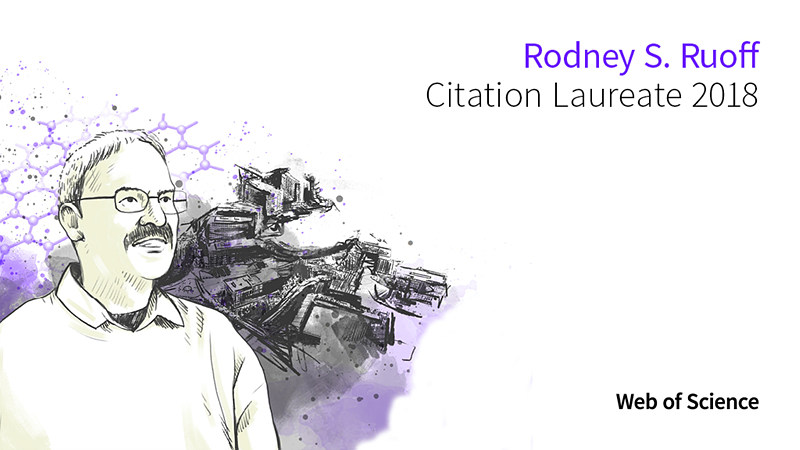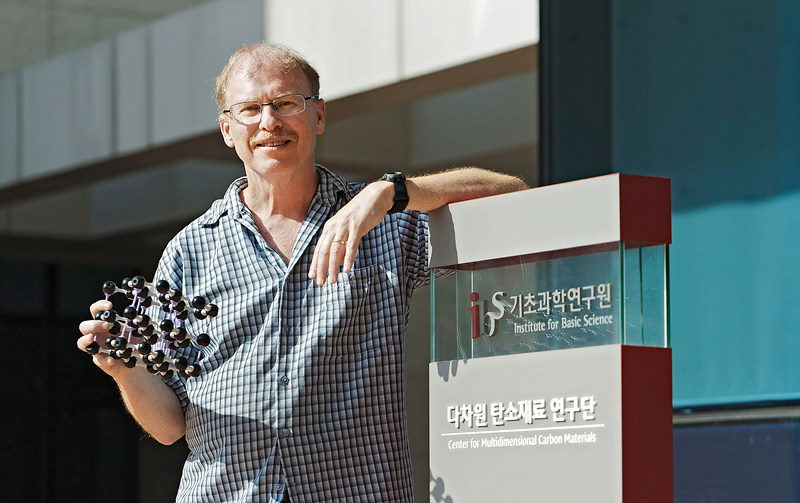주메뉴
- About IBS 연구원소개
-
Research Centers
연구단소개
- Research Outcomes
- Mathematics
- Physics
- Center for Underground Physics
- Center for Theoretical Physics of the Universe (Particle Theory and Cosmology Group)
- Center for Theoretical Physics of the Universe (Cosmology, Gravity and Astroparticle Physics Group)
- Dark Matter Axion Group
- Center for Artificial Low Dimensional Electronic Systems
- Center for Theoretical Physics of Complex Systems
- Center for Quantum Nanoscience
- Center for Exotic Nuclear Studies
- Center for Van der Waals Quantum Solids
- Center for Relativistic Laser Science
- Chemistry
- Life Sciences
- Earth Science
- Interdisciplinary
- Center for Neuroscience Imaging Research (Neuro Technology Group)
- Center for Neuroscience Imaging Research (Cognitive and Computational Neuroscience Group)
- Center for Algorithmic and Robotized Synthesis
- Center for Genome Engineering
- Center for Nanomedicine
- Center for Biomolecular and Cellular Structure
- Center for 2D Quantum Heterostructures
- Center for Quantum Conversion Research
- Institutes
- Korea Virus Research Institute
- News Center 뉴스 센터
- Career 인재초빙
- Living in Korea IBS School-UST
- IBS School 윤리경영


주메뉴
- About IBS
-
Research Centers
- Research Outcomes
- Mathematics
- Physics
- Center for Underground Physics
- Center for Theoretical Physics of the Universe (Particle Theory and Cosmology Group)
- Center for Theoretical Physics of the Universe (Cosmology, Gravity and Astroparticle Physics Group)
- Dark Matter Axion Group
- Center for Artificial Low Dimensional Electronic Systems
- Center for Theoretical Physics of Complex Systems
- Center for Quantum Nanoscience
- Center for Exotic Nuclear Studies
- Center for Van der Waals Quantum Solids
- Center for Relativistic Laser Science
- Chemistry
- Life Sciences
- Earth Science
- Interdisciplinary
- Center for Neuroscience Imaging Research (Neuro Technology Group)
- Center for Neuroscience Imaging Research (Cognitive and Computational Neuroscience Group)
- Center for Algorithmic and Robotized Synthesis
- Center for Genome Engineering
- Center for Nanomedicine
- Center for Biomolecular and Cellular Structure
- Center for 2D Quantum Heterostructures
- Center for Quantum Conversion Research
- Institutes
- Korea Virus Research Institute
- News Center
- Career
- Living in Korea
- IBS School
News Center
| Title | Rodney Ruoff, Listed as a Citation Laureate with the Track Record Deemed to be of 'Nobel Stature'. | ||||||||||||||||||||
|---|---|---|---|---|---|---|---|---|---|---|---|---|---|---|---|---|---|---|---|---|---|
| Name | Communications Team | Registration Date | 2018-09-20 | Hits | 5011 | ||||||||||||||||
| att. |
 thumb.jpg
thumb.jpg
|
||||||||||||||||||||
Rodney Ruoff, Director of the IBS Center for Multidimensional Carbon Materials, Listed as a Citation Laureate with the Track Record Deemed to be of 'Nobel Stature'.Rodney Ruoff, Director of the IBS Center for Multidimensional Carbon Materials is listed as one of 17 top researchers of Citation Laureates 2018 by Clarivate Analytics. The Citation Laureates are deemed to have research track records of 'Nobel stature' as manifested by remarkably high citation tallies recorded in the Web of Science citation index. Director Ruoff is the only researcher on the list being affiliated with a Korean research institution.
For further information, please go to (https://clarivate.com/hall-of-citation-laureates-2018//). The global press release of Clarivate Analytics is as follows: Clarivate Analytics Reveals Annual Forecast of Future Nobel Prize RecipientsNames 17 New Citation Laureates from USA, EU, and Asia PHILADELPHIA, September 20th, 2018: Clarivate Analytics, the global leader in providing trusted insights and analytics to enable researchers to accelerate discovery, today named 17 world-class researchers as Citation Laureates - researchers whose work is deemed to be, 'of Nobel stature’, as attested by markedly high citation tallies recorded in the Web of Science citation index. Each year since 2002, analysts at Clarivate Analytics have drawn on Web of Science publication and citation data to identify influential researchers in the research areas recognized by Nobel Prizes: Physiology or Medicine, Physics, Chemistry, and Economics. Again this year, individuals whose research reports have been cited at high frequency - typically in the top .01% - and whose contributions to science has been transformative, even revolutionary, have been selected to join the hall of Citation Laureates. On October 1st, 2018, the Nobel Assembly will vote to confer sciences’ highest honor and whilst this annual rite inspires worldwide speculation, Clarivate Analytics is the only organization to use quantitative data to make annual forecasts of potential Nobel Prize recipients. To date, 46 Citation Laureates have gone on to receive a Nobel Prize, 27 within two years of being listed. Authors of extremely highly cited papers (to be cited 2,000 times or more is a rarity indeed) are usually members of their national academies of sciences, hold high appointments in universities and other research institutes, or have received many top international prizes in their fields. They often go on to receive Nobel honors. While peer review remains the principal method to recognize research excellence, a parallel approach of appraising the citation record often provides important corroborating evidence to supplement peer review. This year 11 of the 17 honorees are based at leading North American academic institutions; others come from the UK, France, Germany, Spain, Japan and South Korea. Two of the 17 are women.
Professor Ruoff, who is named as one of 2018 Citation Laureates said "I feel honored and also deeply pleased for the many research group members and external collaborators who have coauthored peer-reviewed scientific papers with me." "It has furthermore ben a pleasure, during the 4 years I have been here, to help my affiliation to grow and to do well. Korea has been an exciting and dynamic experience for me." Justin Kim, a country director of Clarivate Analytics Korea said "The research impact of Korea has been developed continuously and now the research category of world-class has started to be unveiled. We look forward to seeing more research fields and Korean researchers with constant results in Korea." Justin Kim, Country Director of South Korea, Clarivate Analytics, said "The research impact of South Korea has rapidly increased over the decades, and is now starting to unveil its world-class research. We look forward to seeing more emerging research fields and Korea’s growing influence and contribution to global research. The 2018 Citation Laureates are:
David Pendlebury, Citation Analyst at the Institute for Scientific Information at Clarivate Analytics said: "Science not only gives rise to new technologies but depends on them too. This year we are naming as Citation Laureates two scientists who have helped fellow researchers significantly. They have made an impact beyond what any one person or team could do alone. Congratulations to Professor Minoru Kanehisa and Professor George Sheldrick for providing the research community with KEGG and SHELX, respectively, which provide data and software that have accelerated discovery for many. The importance of their contributions is reflected in the citation record – both have garnered tens of thousands of citations. While past Nobel Prizes have highlighted methods and tools with revolutionary impact, the importance of databases and software has yet to be acknowledged. Our citation data reveal the enormous influence and impact of this type of scientific contribution. We are making an observation, but perhaps we are also making a suggestion that research achievement comes in many forms today and should not be overlooked." Learn more about the methodology of the list here and view our Hall of Citation Laureates https://clarivate.com/hall-of-citation-laureates/ |
|||||||||||||||||||||
| Next | |
|---|---|
| before |
- Content Manager
- Public Relations Team : Yim Ji Yeob 042-878-8173
- Last Update 2023-11-28 14:20













